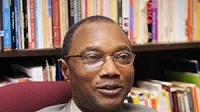
Professor OJAIDE, Tanure, NNOM
Humanities
| Name : | Professor OJAIDE, Tanure, NNOM |
|---|---|
| Award Year : | 2016 |
| Conferred by : | President Muhammadu Buhari, GCFR |
Professor Tanure Ojaide, NNOM, a renowned scholar-poet who bestrides the academic and creative worlds like a colossus, a widely–traveled man who has successfully rendered quality services in academics and creativity to virtually all the states in Nigeria and continents of the world, a man whose life and work both attest to the fact that the quality of a man’s life is measured more by the humble, selfless and impactful service to the people, a service from which one ought not to retire.
Born into the family of Dafetanure and Avwerhoke Ojaide of Okpara Inland, in the Delta State of Nigeria, on April 24, 1948, as the first male child of his parents, he automatically assumes the position of a priest and by extension an oracle. Considering the temper and range of his artistic productivity, Ojaide is not just a bucolic priest and oracle, but by implication, he has become a cultural priest, a social priest, and a universal oracle.
Professor Tanure Ojaide had his early education at St. George’s Grammar School, Obinomba, and Federal Government College, Warri. He later attended the University of Ibadan where he received his BA in English. It was at the University of Ibadan that Ojaide began writing some of the poems that appeared in his first published collection, Children of Iroko and Other Poems. He published in student magazines such as The Beacon and Pelican. After graduating in 1971, Ojaide worked briefly at the Federal Ministry of Education, Lagos. He moved to a teaching job at St. Kelvin’s Grammar School, Kokori, a few kilometers from his birthplace, and was later relocated to Federal Government College, Warri. He remains the first former student of the College to return there after acquiring higher education. After teaching for two years in the newly established Petroleum Training Institute, Effurun, for two years (1975-1977), he went to teach at the University of Maiduguri in 1977. The University of Maiduguri in 1978 sent him to the United States to pursue graduate studies at Syracuse University where he earned the M.A. in Creative Writing and a PhD. in English. He returned to the Department of English at Maiduguri on December 18, 1981. He remained there for nine years, teaching and writing. In 1990, Ojaide accepted a sabbatical leave at Whitman College, Walla Walla, Washington, where he held the Visiting Johnston Professor for that year. After completing the sabbatical year at Walla Walla, he took a tenure track job at the Department of African and African American Studies, University of North Carolina, United States of America. He is currently a Full Professor of Africana Studies at that University. He has equally been appointed the Frank Porter Graham Distinguished Professor of Africana Studies since 2006.
Ojaide is arguably Africa’s most prolific poet. He is also a scholar, nationalist, Pan-Africanist, short story writer, essayist, teacher, and novelist. He has published 20 collections of poetry, 3 memoirs, 3 collections of short stories, 4 novels, about a hundred articles in international indexed journals and books across the world, and 7 scholarly books, including Poetic Imagination in Black Africa (1996), Poetry, Performance, and Art: Udje Dance Songs of the Urhobo People (2003), Contemporary African Literature: New Approaches (2012), Indigeneity, Globalization, and African Literature (2015), and Culture and Literature in Global Africa (2018).
Distinguished ladies and gentlemen, Tanure Ojaide is not just another writer on the long assembly line. His imaginative art and scholarship have earned him numerous awards across the world. A Fellow in Writing of the University of Iowa, his poetry awards include the Commonwealth Poetry Prize for the Africa Region (1987), the All-Africa Okigbo Prize for Poetry (1988, 1997), the BBC Arts and Africa Poetry Award (1988), and the Association of Nigerian Authors Poetry Award (1988, 1994, 2003, and 2011). His first novel, Sovereign Body, was a runner-up for The Commonwealth Literature Prize for the Africa Region in 2005. His non-fiction, Drawing the Map of Heaven: An African Writer’s Experience of America, was a runner-up for the Penguin Prize for African Writing (2010). He received a National Endowment for the Humanities fellowship (1999/2000) to collect and study the "Udje Dance Songs of Nigeria's Urhobo People." He has twice received the Fulbright fellowship (2002/03 and 2013/14), and the Carnegie African Diaspora Fellowship (2016). He has read from his poetry in Britain, Harbourfront (Canada), International Poetry Festival, Medellin (Colombia, 2013), France, Pan-African Poetry Festival, Accra (Ghana, 2008), Israel, Malaysia, Mexico, Nigeria, Spain, World Poetry Festival, Rotterdam (The Netherlands, 1992), the United States, Poetry Africa (South Africa, 2005), and Sahitya Akademi World Poetry Festival, New Delhi (March 21-24, 2014). Three international conferences have been held at Delta State University, Abraka, Nigeria, in July 2005 and July 2008 and the University of Port Harcourt (May 2-5, 2018) respectively to discuss Ojaide’s writings. Ojaide was the 2005 recipient of the University of North Carolina at Charlotte’s First Citizens Bank Scholar Award for his creative writing and scholarship and the 2016 African Literature Association Folon-Nichols Award for African Writer of Excellence. In 2016 he was awarded the Nigerian National Order of Merit for the Humanities. His poetry has been translated into Chinese, Dutch, French, German, Spanish, Sanskrit, and Hindi.
Distinguished ladies and gentlemen, I wish to state categorically here that the body of his literary oeuvre is pivotal in what is today designated as the “literature of the Niger Delta.” This is a distinct body of literary expression that has stayed close to the checkered but calibrated history of the subjugation of the peoples of the Niger Delta region of Nigeria. This body of literature calls to question the history of European colonization and its aftermath, especially it regards oil exploration and exploitation. Tanure Ojaide’s contribution to African poetry is intricately tied to his Urhobo and Pan-Edo origins. A strong believer in the integrity of African cultures and their meaning to the African artists in a globalized world, Ojaide appropriates modes of oral performance in his culture and then transforms them to fit into his larger poetic concerns, which are clearly visible in his very first collection of poems, Children of Iroko and Other Poems. While Ojaide’s poetry resonates with universal human values and aspirations, the core of its meaning-making techniques is in the specificity of Urhobo oral traditions, especially the bold and highly poetic lyrics of the Udje dance songs. As a cultural entrepreneur, Ojaide transforms the “curse-poetry” of the Udje singer into a system for addressing the ills of postcolonial Nigeria. Ojaide achieves three extraordinary literary feats by this singular act of artistic transmogrification. He brings his Urhobo culture into the poetic and scholarly debates of African literary forms while at the same time calling specific attention to the social and cultural geography of the abject conditions of the Niger Delta. And above all, by not allowing the agony of the failure and weaknesses of human existence to becloud his artistic vision, Ojaide remains a very sensitive poet who celebrates the triumph of humanity over tyranny and the enduring power of art in negotiating human existence. Interestingly, one will easily notice an intricate relationship between Ojaide’s goals as a scholar and an artist. Professor Tanure Ojaide has functioned as an external examiner to Universities in North America, Asia, and Africa.
Most of his students and colleagues continue to admire Professor Ojaide for his commitment to academics, his exemplary humility, and his liberal attitude to life. He does not see students and mentees just as students, but as fellow humans and friends who should be treated fairly and decently at every point of interaction. Gentle and accessible, he gives a human face to his University teaching. Professor Ojaide is a man of impressive personality. Indeed, he is a “most sensible individual.” In him is a fine combination of the neoclassic ideal of rationality, the profound thoughtfulness of the romantics, and the nobility of African humanity. A lively, humorous, and warm-hearted man, Professor Ojaide takes people for who they are, irrespective of status, gender, class, or religion. He is completely detribalized, such that his friendship cuts across ethnic boundaries. A true scholar, his mind is untainted by prejudices, pettiness, and bigotry.
Distinguished ladies and gentlemen, I present to you this total gentleman and teacher/mentor-friend. A rare example of the teacher-friend, this academic colossus, Africa’s most prolific poet, world-renowned literary scholar, cultural enthusiast, an innovator, fore-sighted and thorough-bred manager of men and materials, an ebullient Professor, Professor of Professors, Frank Porter Graham Distinguished Professor of Africana Studies, an optimistic lover of humanity, a likeable, humble, unassuming and companionable gentleman. Professor Tanure Ojaide.
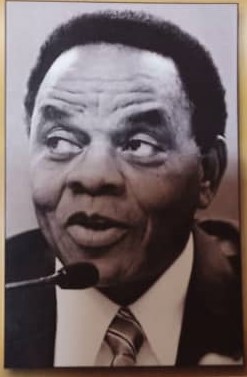
Prof. CHIDUME., Ejike Charles, LATE,, NNOM
Science
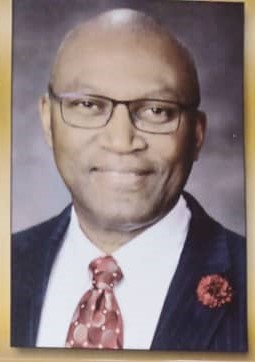
Prof OLUTOYE, Olurotimi Oluyinka, NNOM
Medicine
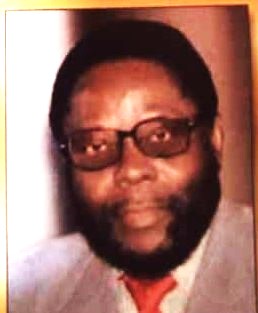
Prof EKHAGUERE, O. Samuel Godwin, NNOM
Science
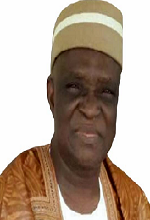
Prof. OLUFEMI, OBAFEMI, NNOM
Humanities, arts and culture
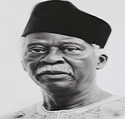
Mr ONOBRAKPEYA, Paul Bruce, NNOM
Humanities, arts and culture
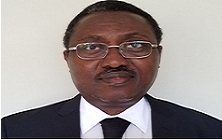
Prof. ADESINA, Adesoji, NNOM
Engineering/technology

Professor SADIK, Omowunmi, NNOM
Science

Professor OJAIDE, Tanure, NNOM
Humanities